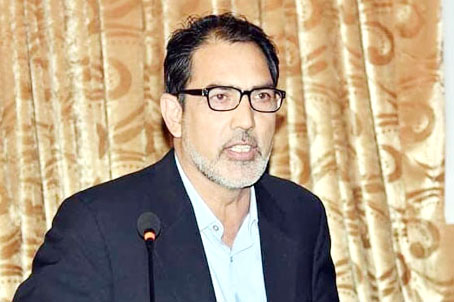MIRPUR, Oct 26 (APP): World-famous Kashmiri think tank Kashmir Institute of International Relations’ Chairman Altaf Hussain Wani has said that 27 October was the darkest day in Kashmir’s recent history. “India’s naked aggression on this fateful day in 1947 is the root cause of the Kashmir conflict that continues to threatens peace and stability in the South Asian region even after the passage of 76 years”, Wani said in a statement issued here on Saturday.
The bloodshed that India started in occupied Jammu and Kashmir in 1947 is still ongoing, with innocent Kashmiris being killed with impunity on the streets of Kashmir. Wani has lamented that the Indian government’s settler colonialism policies, which mirror Israel’s policies, have instilled a sense of fear among Kashmiris, making them feel increasingly unsafe and insecure even in their homeland.
The conflict has assumed dangerous proportions after the Indian fascist regime led by BJP stripped the region of its special status guaranteed under article 370 of the Indian constitution. Wani has termed India’s belligerent military occupation of Kashmir as a great threat to peace and stability in the region, and has urged the world powers to take effective notice of the matter.
The Kashmir conflict is a complex issue that has been ongoing for decades, with multiple parties involved. The region is divided between India, Pakistan, and China, with each country having its own claims and interests. The conflict has resulted in the loss of thousands of lives, and has had a devastating impact on the economy and infrastructure of the region.
Wani has called for the global community to take effective cognizance of India’s prolonged military occupation of the disputed territory and play its due role to settle the conflict in accordance with the UNSC resolutions. He has also emphasized the need for a free and impartial plebiscite in the region, which was endorsed by the Indian representative in the UN Security Council in 1947.
October 27 marks the darkest day in Kashmir’s recent history: Wani
- Advertisement -
- Advertisement -
- Advertisement -

